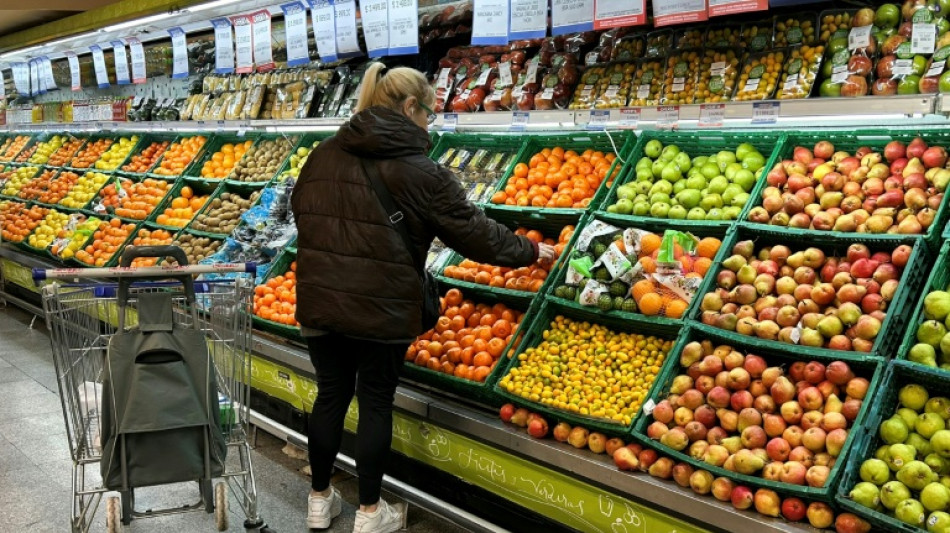
-
 Ex-US climate envoy: Trump threatening 'consensus science' worldwide
Ex-US climate envoy: Trump threatening 'consensus science' worldwide
-
EU proposes action on Israel trade and ministers over Gaza
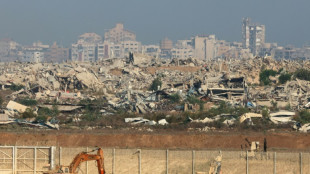
-
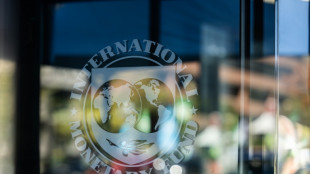 US Treasury official expected to be named IMF's second-in-command: source
US Treasury official expected to be named IMF's second-in-command: source
-
Man City 'apparently' not Champions League contenders: Guardiola

-
 EU says India's Russia links jeopardise closer ties
EU says India's Russia links jeopardise closer ties
-
Ukraine reach BJK Cup semi-finals for first time

-
 Benjamin sets up 'historic' hurdles showdown with Warholm and Dos Santos
Benjamin sets up 'historic' hurdles showdown with Warholm and Dos Santos
-
Milan-Cortina bobsleigh track 'surpasses expectations', say Winter Olympics organisers

-
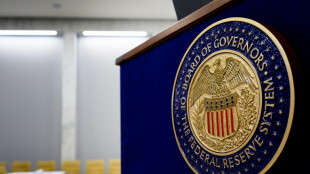 Stocks, dollar calm ahead of expected US rate cut
Stocks, dollar calm ahead of expected US rate cut
-
Nvidia CEO disappointed over China chip ban report

-
 Portugal's Isaac Nader wins world men's 1,500m gold
Portugal's Isaac Nader wins world men's 1,500m gold
-
France launches appeal to acquire Proust's 'madeleine' writings

-
 East Timor to scrap MP pensions and SUVs after protests
East Timor to scrap MP pensions and SUVs after protests
-
Van Niekerk enjoys second wind in Tokyo after injury nightmare

-
 American Moon wins third straight world pole vault gold
American Moon wins third straight world pole vault gold
-
King gives Trump royal welcome on UK state visit

-
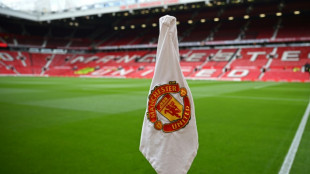 Man Utd post sixth straight annual loss despite record revenues
Man Utd post sixth straight annual loss despite record revenues
-
Australian teen Gout Gout revels in world championships debut

-
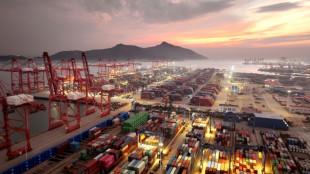 AI may boost global trade value by nearly 40%: WTO
AI may boost global trade value by nearly 40%: WTO
-
New Zealand star Miller out of Women's Rugby World Cup semi-final

-
 Lyles and Gout Gout advance to world 200m semi-finals
Lyles and Gout Gout advance to world 200m semi-finals
-
S.Africa commission begins probe into alleged links between politics and crime

-
 PSG women in audacious bid to sign Barca's Putellas
PSG women in audacious bid to sign Barca's Putellas
-
Jefferson-Wooden eases into world 200m semis and sets sights on being next Fraser-Pryce

-
 Germany's Merz vows 'autumn of reforms' in turbulent times
Germany's Merz vows 'autumn of reforms' in turbulent times
-
EU says India's Russian oil purchases, military drills hinder closer ties

-
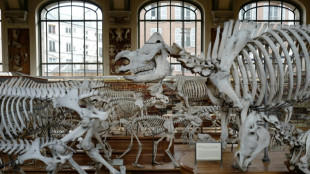 Gold worth 600,000 euros stolen in Paris museum heist
Gold worth 600,000 euros stolen in Paris museum heist
-
Top music body says AI firms guilty of 'wilful' copyright theft

-
 Trump gets royal treatment on UK state visit
Trump gets royal treatment on UK state visit
-
Ostrich and emu ancestor could fly, scientists discover

-
 Former boxing world champion Hatton 'excited for the future' before death: family
Former boxing world champion Hatton 'excited for the future' before death: family
-
After mass Nepal jailbreak, some prisoners surrender

-
 Poison killed Putin critic Navalny, wife says
Poison killed Putin critic Navalny, wife says
-
Australia coach expects Cummins to play 'key part' in Ashes

-
 Ben & Jerry's co-founder quits, says independence 'gone'
Ben & Jerry's co-founder quits, says independence 'gone'
-
Erasmus keeps faith with Springbok squad after record All Blacks win

-
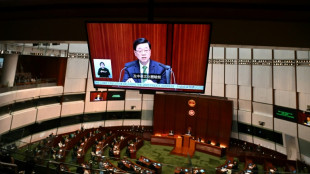 Hong Kong leader unveils plan to boost growth with border mega-project, AI push
Hong Kong leader unveils plan to boost growth with border mega-project, AI push
-
New Zealand's historic athletics worlds a decade in the making

-
 Trump to get royal treatment on UK state visit
Trump to get royal treatment on UK state visit
-
Benfica sack Lage after shock defeat, Mourinho next?

-
 Israel says to open new route for Gazans fleeing embattled city
Israel says to open new route for Gazans fleeing embattled city
-
Nestle share price slips as chairman follows CEO out the door
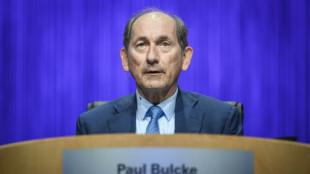
-
 German suspect in Madeleine McCann case freed from prison
German suspect in Madeleine McCann case freed from prison
-
US tennis star Townsend apologises for 'crazy' Chinese food post

-
 Peru evacuates 1,600 tourists from Machu Picchu amid protest
Peru evacuates 1,600 tourists from Machu Picchu amid protest
-
Nepal mourns its dead after anti-corruption protests

-
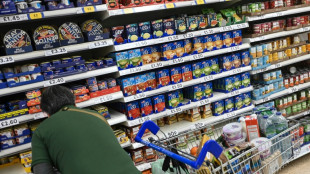 UK inflation stable ahead of central bank rate call
UK inflation stable ahead of central bank rate call
-
India checks Maoist rebel offer of suspending armed struggle

-
 Israel to open new route for Gazans fleeing besieged city
Israel to open new route for Gazans fleeing besieged city
-
Lower shipments to US, China weigh on Singapore August exports
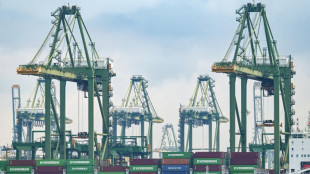
| CMSC | 0.57% | 24.53 | $ | |
| RIO | -0.6% | 63.06 | $ | |
| SCS | 0.24% | 16.92 | $ | |
| BCC | -0.01% | 82.385 | $ | |
| RBGPF | 0% | 77.27 | $ | |
| NGG | 0.47% | 71.215 | $ | |
| RELX | 0.86% | 47.095 | $ | |
| BCE | 0.42% | 23.53 | $ | |
| BTI | 0.37% | 55.995 | $ | |
| CMSD | 0.18% | 24.505 | $ | |
| RYCEF | -1.11% | 15.33 | $ | |
| JRI | -0.55% | 13.844 | $ | |
| VOD | -0.47% | 11.715 | $ | |
| BP | -0.04% | 34.415 | $ | |
| AZN | 0.52% | 77.965 | $ | |
| GSK | 0.83% | 40.385 | $ |

Argentina under Milei: a tale of two economies
In Javier Milei's Argentina, falling inflation has stimulated a boom in car and real estate sales and foreign-bound planes take off laden with tourists.
But on the other side of a very complicated economic coin, consumption is dropping precipitously among low- and middle-income groups while more and more people work in precarious jobs and buy groceries on credit.
Milei, who took office as president in December 2023, has partly succeeded in his quest to curb state spending and runaway inflation, which reached a five-year monthly low in May.
But the price has been a devalued peso and deep cuts to state subsidies that made access to housing, health care and education prohibitively expensive for millions.
Consumer spending dipped heavily last year and a tentative rebound has been unequal: spending on tangible assets such as apartments and cars has skyrocketed among the rich, while ever more poorer people can not afford shoes or food.
Nine out of 10 Argentine households are in debt, official data shows. Even more have defaulted on a loan.
- 'An excellent June' -
"Nothing is selling," shoe store employee Laura Comiso told AFP in downtown Buenos Aires after yet another afternoon without customers.
But in San Andres de Giles west of the capital, car salesman Blas Morales waxed lyrical about "an excellent June!"
According to Sebastian Beato, president of Argentina's ACARA car dealership association, the first half of 2025 was "the best in seven years" with sales up nearly 80 percent from 2024.
Under Milei's measures, loans have become cheaper, and Argentines have been encouraged by a tax amnesty to bring out billions of US dollars they had stashed under mattresses and floorboards, in safety deposit boxes and offshore accounts.
Investment in real estate increased 22 percent year-on-year in Buenos Aires in May.
In the first four months of 2025, more mortgages were taken out in Argentina than in all of 2024.
"The change in government has been very positive for this sector," third-generation real estate agent Diego Sardano told AFP.
"Under the previous government, we went months without making a single sale. Now we have about five sales per month," he added.
A stronger peso also benefits those traveling abroad but harms domestic tourism, with bookings plummeting.
Between January and April, about six million Argentines traveled abroad -- 70 percent more than in the same period in 2024.
The country received only two million visitors at the same time, the lowest figure in a decade.
- No more candy -
Consumption is being driven largely by Argentina's upper class, which comprises no more than six percent of the population.
Consulting firm Moiguer said in a recent report the economic recovery after months of recession was not benefiting everyone equally, and was exacerbating income inequality.
Half of Argentines tell pollsters they cannot make ends meet, and a third delay planned purchases in order to pay for essentials.
Sardano, the realtor, said he feared spending on homes and apartment may have peaked "because people's purchasing power isn't increasing."
"High-end car registrations are increasing while food consumption is falling. The middle class is being wiped out," added Rodolfo Aguilar, head of the State Workers' Union (ATE) which has reported 40,000 job losses among its ranks under Milei.
Fernando Savore, head of the Federation of Small Businesses in Buenos Aires province, said having a job no longer guarantees financial stability because wages have not kept pace with rising gas, electricity and transport prices, or school fees.
"Much of a worker's income goes toward these obligations. There are items that no longer sell, like candy and desserts," he told AFP.
"People only buy necessities like pasta and tomato puree, nothing more, and many are buying on credit."
T.Ziegler--VB
